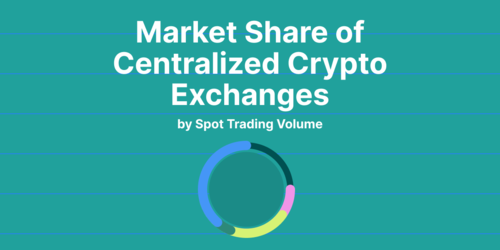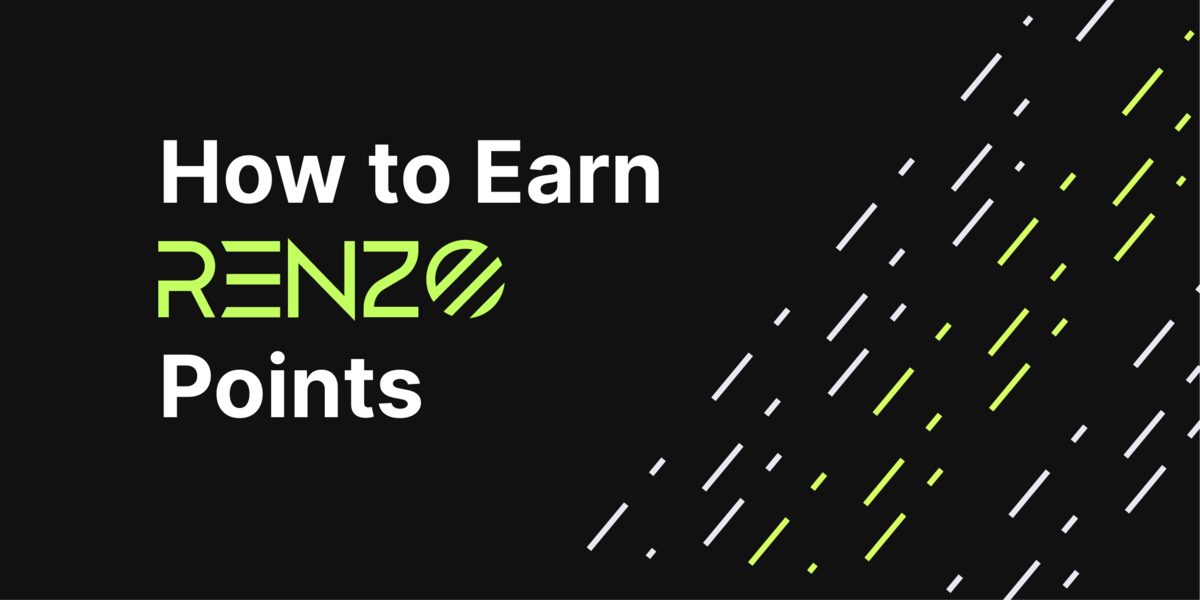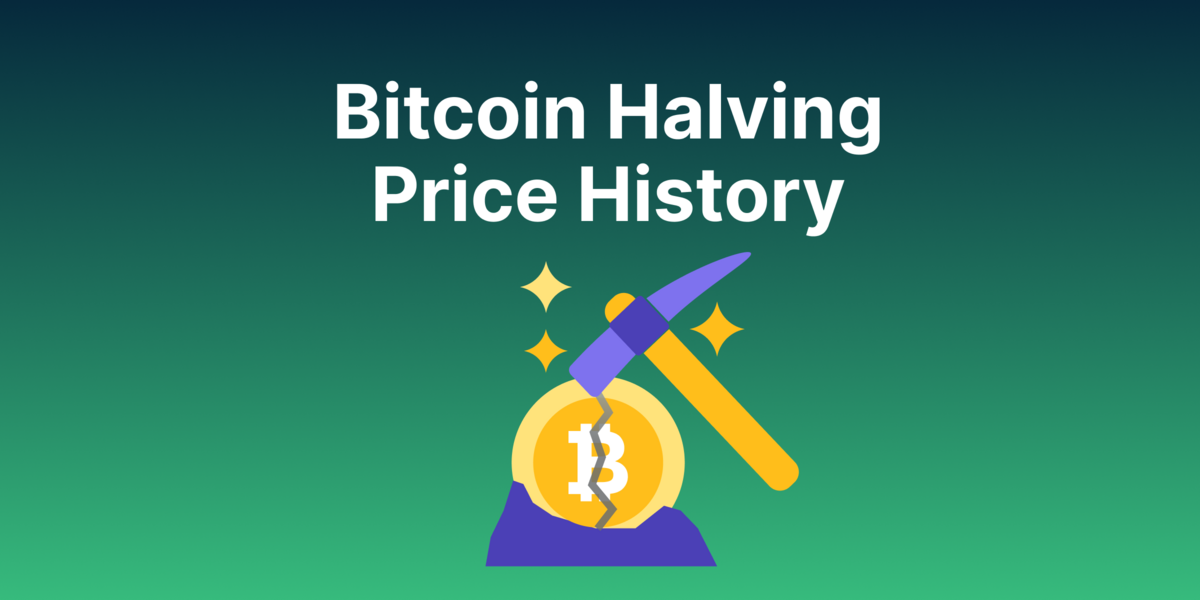What Are RPC Nodes?
RPC stands for remote procedure call, and RPC nodes allow applications to communicate with the blockchain. Protocols may opt for private RPC endpoints, as these can improve a blockchain application’s security by offering front-running protection, shielding transactions from the public mempool.
Key Takeaways
-
A crypto RPC protocol allows applications to communicate with a blockchain network.
-
The nodes allow developers to build and run software interacting with the blockchain network.
-
RPC nodes work by accepting requests from applications, processing those requests, and returning the results to the applications.
-
Public RPC endpoints are available for anyone and are generally used for testing and development purposes. In contrast, private RPC endpoints are only accessible to the individuals who own them and are typically used for production-level applications.
-
Choosing the best provider depends on your specific needs, such as scalability, budget, requests per second, networks supported, and customization options.
-
Alchemy, Infura, QuickNode, GetBlock, Chainstack, Ankr, NodeReal, Blockdaemon, Pocket Network, and Blast are some of the most popular RPC providers based on monthly site visits.

In crypto, RPC nodes are your gateway to blockchains. They enable you to interact with blockchains and perform activities such as viewing transaction data and executing smart contract prompts. RPC providers offer RPC node hosting services, so you don't have to run your own.
Typically, there are free, publicly-accessible crypto RPC nodes for every blockchain, and these are used to add networks like zkSync Era to wallets like MetaMask. However, these nodes are often relatively unstable because of over-use. For instance, a transaction may lag or even fail during network congestion. Alternatively, multiple service providers offer private RPC node hosting services at a fee, like Alchemy, Ankr, Quicknode, Blast, and Infura.
This article will discuss RPC nodes, how they work, the difference between public and private RPC endpoints, the benefits of using a private RPC node, and the best crypto RPC providers sorted by monthly traffic.
RPC Nodes In Crypto
RPC stands for Remote Procedure Call. In crypto, it refers to a protocol that allows applications to communicate with a blockchain. In other words, a crypto RPC node acts as an interface between the blockchain network and its applications. These nodes allow developers to build and run software that interacts with the blockchain network like decentralized applications, making it easier for them to retrieve data, submit transactions, and perform other functions.
How Do RPC Nodes Work?
RPC nodes work by accepting requests from applications, processing those requests, and returning the results to the applications. When an application/client sends a request to an RPC node/server, the node communicates with the blockchain network to perform the requested action. For example, suppose a client wants to retrieve information about a particular transaction. In that case, they send a request to the RPC node, retrieving the information from the blockchain network and returning it to the application.

To use an RPC node, you must program your applications to use the specific RPC calls supported by the node. These calls can include retrieving data about transactions, submitting new transactions, and checking the status of the blockchain network. You should be careful when working with public RPC nodes, as some calls may be vulnerable to security risks such as hacking or data theft.
Public vs. Private RPC Endpoints: What Is The Difference?
Public RPC endpoints are available for anyone and are generally used for testing and development purposes. Developers often use public RPC endpoints to experiment with new applications and features or to build prototypes for new projects. However, public RPC endpoints may only sometimes be reliable and may be subject to security risks, so it's important to be cautious when using them.
On the other hand, private RPC endpoints are only accessible to the individuals or organizations who own them. Private RPC endpoints are typically used for production-level applications and are more secure and reliable than public RPC endpoints. With a private RPC endpoint, you gain more control over the transmitted data and can be confident your data is safe from prying eyes.
Benefits of Using a Private RPC Endpoint
The benefits of using a private RPC endpoint include increased security, reliability, and control over the transmitted data. With a private RPC endpoint, you enjoy full control over the transmitted data, guaranteeing the security and privacy of sensitive information. In addition, private RPC endpoints are typically faster and more reliable than public RPC endpoints.
Another benefit of using a private RPC code is the ability to customize the interface and the code's functionality to meet application-specific needs. This allows you to create more complex applications that can utilize the blockchain network's full capabilities while maintaining the data transmission's security and reliability.
A private RPC endpoint can significantly enhance blockchain-based applications' security, reliability, and performance. Whether you are building a new application or upgrading an existing one, a private RPC endpoint can help you achieve your goals more effectively and with greater peace of mind.
Private RPCs also offer front-running protection, by adding a layer of privacy that hides your transactions in the mempool, offering a safeguard from bots and MEV searchers. This routes transactions to block proposers, shielding them from the public mempool, allowing users to execute their trades before front-runners and sandwich bots can interfere.
Top 8 Crypto RPC Providers
Now that you understand crypto RPC nodes, how they work, the difference between public and private RPC nodes, and the benefits of using private RPC nodes, let's start looking at some RPC providers in the crypto space, ranked based on their monthly site visits.
Alchemy
Alchemy is the leading web3 development platform offering RPC node services and infrastructure tools to onboard developers easily. It supports multiple blockchains, including Ethereum, Solana, Arbitrum, Optimism, Polygon, Starknet and Astar. Beyond providing blockchain nodes for developers, Alchemy also offers multiple APIs and a web3 account abstraction SDK. Based on web traffic, Alchemy is the most popular platform, with 1.3 million monthly visits.
Pricing

Alchemy applies rate limits on its tiers to ensure its users receive a guaranteed level of service quality, based on Compute Units (CU), which measure how much resources an API method uses. For an idea of how these translate to requests, 300 million CUs is approximately 12 million requests monthly.
-
Free – 300 million compute units per month, access to the full Alchemy Development Platform, SDKs, Node and NFT APIs, and webhooks.
-
Growth – 400 million compute units per month at $49, along with additional access to Debug, Trace, and Transaction APIs.
-
Scale – 1.5 billion compute units per month, along with the Gas Manager API, where one entity can sponsor the gas fees for another entity at $199 per month.
There is also an enterprise plan available upon request.
Infura
Infura is a blockchain development suite, offering anyone a set of tools to create applications that connect to the Ethereum blockchain. Infura is also one of the market's largest and most established RPC providers, providing access to Ethereum, Polygon, Optimism, Arbitrum, Aurora, Starknet, Avalanche (C-Chain), BNB Smart Chain, and more. It aims to offer fast, accessible and reliable access to major blockchains and Ethereum Layer 2s by providing access to RPC endpoints, without needing users to run their own nodes. This frees users to focus on dApp development, ranging from blockchain gaming to DeFi and NFTs. Infura also provides real-time event streaming and APIs for web3.js and JSON-RPC.
Pricing

Infura supports four pricing plans (in addition to a custom Enterprise plan):
-
Core – Up to 100,000 requests and 25,000 archive requests per day free of charge.
-
Developer – Up to 200,000 requests and 100,000 archive requests per day, along with direct customer support at $50 per month.
-
Team – Up to 1 million requests and 1 million archive requests per day, including direct customer support at $225 monthly.
-
Growth – Up to 5,000,000 requests and 5 million archive requests per day, with direct customer support at $1,000 per month.
At an additional $200 a month, you can add an additional 1 million additional total requests daily.
QuickNode
QuickNode is an RPC provider that provides fast and reliable access to 24 networks, including Ethereum, BNB Chain, Arbitrum, Optimism, Polygon, Aptos, Avalanche, Fantom, zkSync Era, Solana, and more. It can handle over 100,000 requests per second and supports many use cases, including dApp development, DeFi, and NFTs. It offers developers the infrastructure to create web3 apps with the ease of web2 development. You can easily build dApps using the QuickNode APIs and choose relevant add ons that suit your needs. Regardless of the plan you choose, you’ll have access to QuickNode’s NFT, Token, and Graph APIs.
Pricing

QuickNode has four pricing tiers:
-
Discover – 50 million API Credits per month, 1 endpoint and community support.
-
Discover+ – 100 million API Credits, 2 endpoints and community support at $10 per month.
-
Build – 500 million API Credits, 10 endpoints and 24 hours support response time at $49 per month.
-
Scale – 3 billion API Credits, 20 endpoints, and 8-12 hours support response time at $299 per month.
API Credits are used to measure usage on QuickNode, and once the monthly API Credits threshold is reached, with charges for additional usage:
-
Discover+: $1.50 per additional million
-
Build and Scale: $1 per additional million
There is also an enterprise plan available upon request.
GetBlock
GetBlock is a crypto RPC provider with a blockchain-as-service (BaaS) structure and APIs. Its developer tools and documentation ensure easy and reliable API access to over 60 mainnets and testnets, like Bitcoin, Ethereum, BNB Smart Chain, Solana, Polygon, zkSync, Cosmos, and more. Networks are split into shared nodes, where all GetBlock users use the same node simultaneously with a rate limit of 60 requests per second, dedicated nodes, which are deployed to be used by a single user, and protocols that are only available for enterprise customers.
It provides custom SLAs based on your app performance and business structure. Besides, you can integrate GetBlock's APIs into web3 wallets, enabling lightning-fast transactions at low costs.
Pricing

GetBlock offers 4 pricing plans, along with an enterprise option:
-
Free – Up to 40k requests per day, with access to 50 chains and 60 requests per second rate limit.
-
Pay Per Request – $2.98 per million requests, with access to 50 chains and 60 requests per second rate limit.
-
Shared Nodes – $499 per month, unlimited requests, with access to 50 chains and 60 requests per second rate limit.
-
Dedicated Nodes – $600 per node per month, private server, no rate limits, and archive data available.
Chainstack
Chainstack is a multi-chain infrastructure provider that offers RPC services for 25 networks, including Bitcoin, Ethereum, BNB Smart Chain, Polygon, Avalanche, Gnosis, Solana, Aptos, Near, Filecoin, Tezos and more. Its managed network services make it easy to sign up, launch, and scale dApps. Chainstack offers everything you need to create and scale web3 applications from testing to production. Nodes on Chainstack can be global or regional elastic nodes, where the former offers optimized routing requests by routing to the closest endpoint to a user’s location, while regional elastic nodes provide a regional-based endpoint that is bound to a specific location and provider. Chainstack also offers dedicated nodes, which are deployed for a specific customer, with its compute resources not shared with anyone else.
Chainstack does not throttle throughput based on traffic volume, and the monthly request volumes have no limit on the number or type of requests a dApp makes daily for paid plans.
Pricing

Chainstack has three pricing plans, in addition to a custom enterprise plan:
-
Developer – The free plan has a limit of 30 RPS, with 3 million request units and access to global and regional elastic full nodes, one node and one subgraph.
-
Growth – Everything in the Developer plan, unlimited RPS, regional elastic archive nodes, dedicated nodes, 10 nodes and up to 10 subgraphs at $49 per month.
-
Business – Everything in the Growth plan, up to 20 nodes and 20 subgraphs.
Request units are used to measure usage on Chainstack, and once the monthly request units threshold is reached, there are charges for additional usage:
-
Developer: $20 per 1 million request units
-
Growth: $15 per 1 million request units
-
Business: $10 per 1 million request units
Subgraphs also come with an additional charge of $0.10 per hour compute cost.
Ankr
Ankr is a multi-chain infrastructure provider that offers RPC services for 30+ blockchains, including Polygon, Ethereum, BNB Chain, Fantom, Avalanche, Optimism, Arbitrum, Solana, Celo, Gnosis, Moonbeam, TRON, and more. Ankr has nodes running in 30+ global regions, which offers developers low-latency connections at high speeds wherever they are. To decentralize the RPC service, Ankr has 40 data centers and is also onboarding independent node providers to serve RPC traffic, and this decentralization helps improve apps’ resistance to centralized outages.
Pricing

Ankr supports two pricing plans in addition to a custom enterprise plan:
-
Free – A free plan ideal for smaller projects and individual builders. It supports 30 requests per second, 23 chains, and 10 regions. Support is limited to community support.
-
Premium – A pay-as-you-go plan ideal for projects interested in fast and reliable infrastructure, with a rate of $10 per 100 million credits. This supports 1500 requests per second, 30 chains, and 40 regions, with access to a support portal.
NodeReal
NodeReal is a one-stop web3 infrastructure provider offering scalable, reliable, and seamless RPC services for everyone. The NodeReal MegaNode provides access over HTTPS and WebSockets to the EVM blockchains, with 20,000 developers using its solutions. It has an average response time of 8.99 ms, 99.8% API uptime, and over 1 billion daily API requests per day. NodeReal supports 29 chains, including BNB Smart Chain, Ethereum, Polygon, Aptos, Optimism, Arbitrum, Avalanche, Cronos, TRON and Solana blockchains.
Pricing

NodeReal has four pricing plans (excluding custom enterprise plans):
-
Free – Access to supported networks, 3 API keys, 100 million compute units per month, and 300 compute units per second at $0, with Discord support.
-
Growth – Supports everything in the Free plan, 15 API keys, Debug API, 500 million compute units per month, and 700 compute units per second at $39 per month, with dedicated Discord support.
-
Team – Supports everything in the Growth plan, 30 API keys with 2 billion monthly compute units and 1,500 compute units per second at $199 per month with VIP support.
-
Business – Supports everything in the Team plan, 50 API keys with 5 billion monthly compute units and 3,000 compute units per second at $499 per month with VIP support.
Blockdaemon
Blockdaemon offers Nodes-as-a-Service, supported by high availability clusters to offer secure backups and manage load spikes. Blockdaemon offers access to nodes for over 40 networks, including: Ethereum, Bitcoin, Cardano, Evmos, NEAR, Stellar, Polkadot, and more. However, some of these, such as Cardano and Evmos, require assisted deployment by the Blockdaemon team. Other chains may use Blockdaemon’s Ubiquity API, which is their blockchain API suite used to query data and broadcast transactions without needing to operate or manage nodes.
Blockdaemon also offers dedicated nodes, which are deployed exclusively for the owner’s use.
Pricing

Blockdaemon has two pricing plans, excluding enterprise:
-
Free – The free plan offers up to 3 million compute units, access to 20+ protocols, and 25 requests per second.
-
Starter – The starter plan offers up to 30 million compute units, access to 20+ protocols, 100 requests per second, and standard support at $199 monthly. Additional compute units are charged at $0.08 per 1K compute units.
Pocket Network (POKT)
Pocket Network claims to be the world's first truly decentralized RPC platform governed by an active decentralized autonomous organization (DAO). It is a two-way marketplace that matches blockchain application developers with infrastructure providers and node runners, with a network of over 17,000 nodes in 22 countries supporting over 40 networks. Pocket incentivizes RPC nodes to offer dApps and their clients reliable web3 access. It supports numerous networks, including Arbitrum, Avalanche, BNB Smart Chain, Ethereum, Evmos, Fantom, Gnosis, Moonbeam, Optimism, and more.
Pricing
Pocket Network leverages its native token, POKT, to establish a permissionless, two-sided market between node providers and builders. The operators and builders must stake POKT to participate in the platform. Nodes generate rewards for processing API submissions from builders. POKT is an inflationary asset, but the DAO will regulate its total supply via burning.
Blast
Blast is a decentralized web3 infrastructure that uses a series of clustering and geo-location to optimally route user requests based on where the call is generated from. Also, as it uses third-party nodes globally, Blast ensures decentralization, reducing down-time and increasing reliability. Blast offers RPC services for 27 chains, including Ethereum, BNB Smart Chain, Optimism, Sui, Linea, Avalanche, Moonbeam, Fantom, Polygon, MultiversX, Astar, Gnosis, Aptos, and more. It supports multi-region RPC node services with automated traffic routing for maximum response times. Blast aims to solve web3 reliability and performance problems by effectively leveraging resources pooled by third-party node providers and its state-of-the-art API platform.
Pricing

Blast supports three pricing plans:
-
Free – Up to 12 million API calls per month, 40 API calls per second, one project, and Discord support at $0.
-
Developer – Up to 20 million API calls per month, 100 API calls per second, three projects, and Discord support at $50 per month.
-
Startup – Up to 80 million API calls per month, 400 API calls per second, ten projects, and Discord support at $250 per month.
There is also a custom enterprise plan available.
Conclusion
A crypto RPC node facilitates communication between systems or applications over a network – it interfaces the blockchain network and its applications. The best crypto RPC providers offer reliable, secure, and efficient communication services. Choosing the best provider depends on your specific needs, such as scalability, budget, requests per second, networks supported, and customization options.

CoinGecko's editorial team comprises writers, editors, research analysts and cryptocurrency industry experts. We produce and update our articles regularly to provide the most complete, accurate and helpful information on all things cryptocurrencies. Follow the author on Twitter @coingecko









 Or check it out in the app stores
Or check it out in the app stores